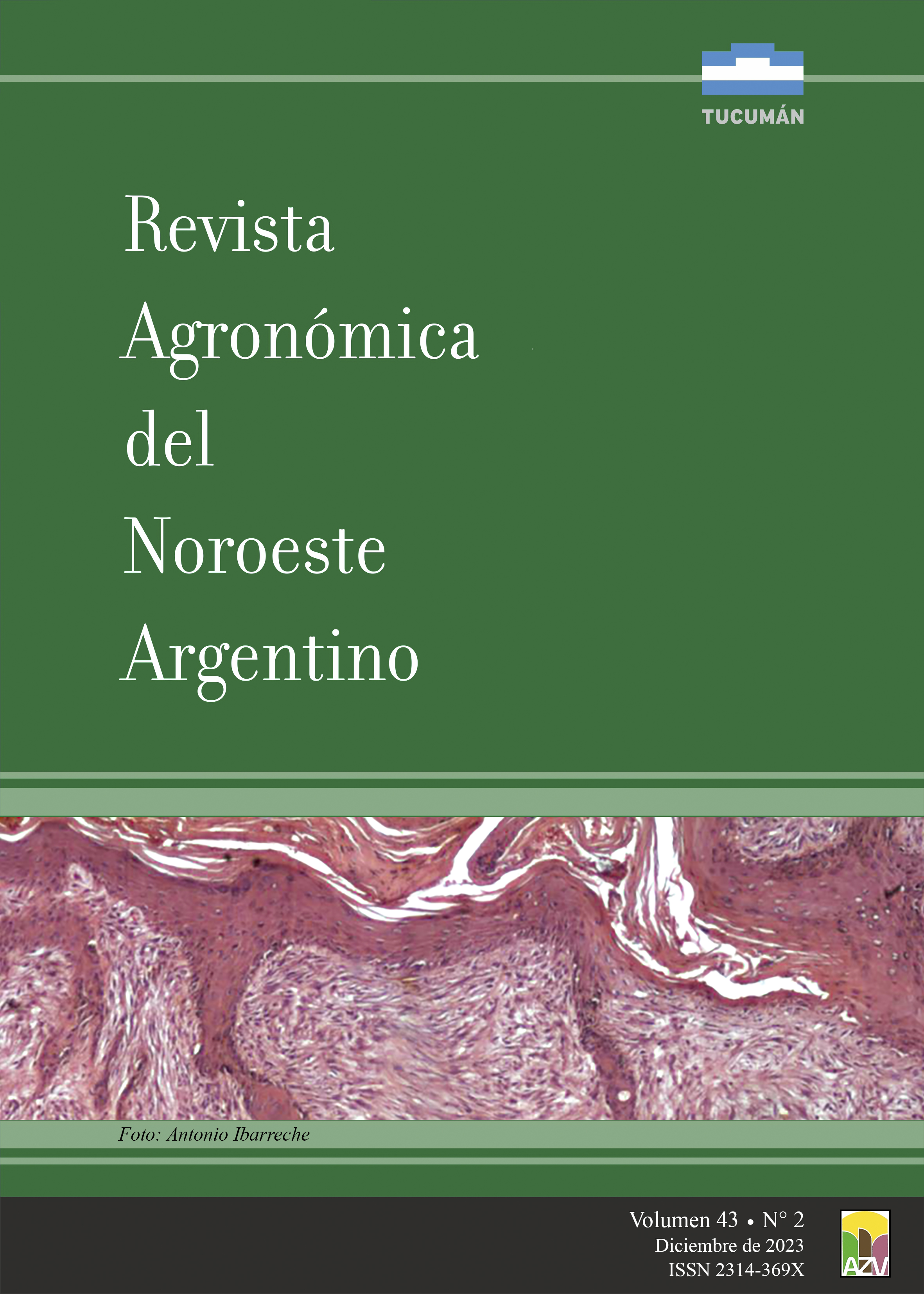Effect of the combination of a plant-based bioproduct and a microbial one on the growth and production of strawberry crop (Fragaria x ananassa Duch)
Keywords:
Bioproducts, Growth promoter, VegetablesAbstract
Bioproducts are fundamental to enhance production processes, maintaining environmental quality and promoting
sustainable agricultural practices. There are a variety of bioproducts available with both plant and microbial origins.
This study aimed to evaluate the effect of a hydro-alcoholic extract of strawberry, applied individually and combined
with the REC3 strain of Azospirillum argentinense, as a growth and fruit production promoter in strawberry plants.
Two concentrations of extract (1 and 10 mg fresh weight ml-1) were used, both alone and combined with a suspension
of 106 CFUml-1 of REC3. As controls, plants were treated with water, a chemical fertilizer, and REC3, independiently.
The results indicated that the combined treatment with both bioproducts did not produce an additive effect, since the
individual treatments with the extract showed the highest values in growth and production variables, raising several
questions. These findings highlighted the need to evaluate bioproducts separately to determine the most effective and
compatible way of using them in conjunction with other products.
Downloads
Published
Issue
Section
License

This work is licensed under a Creative Commons Attribution-NonCommercial-ShareAlike 4.0 International License.









